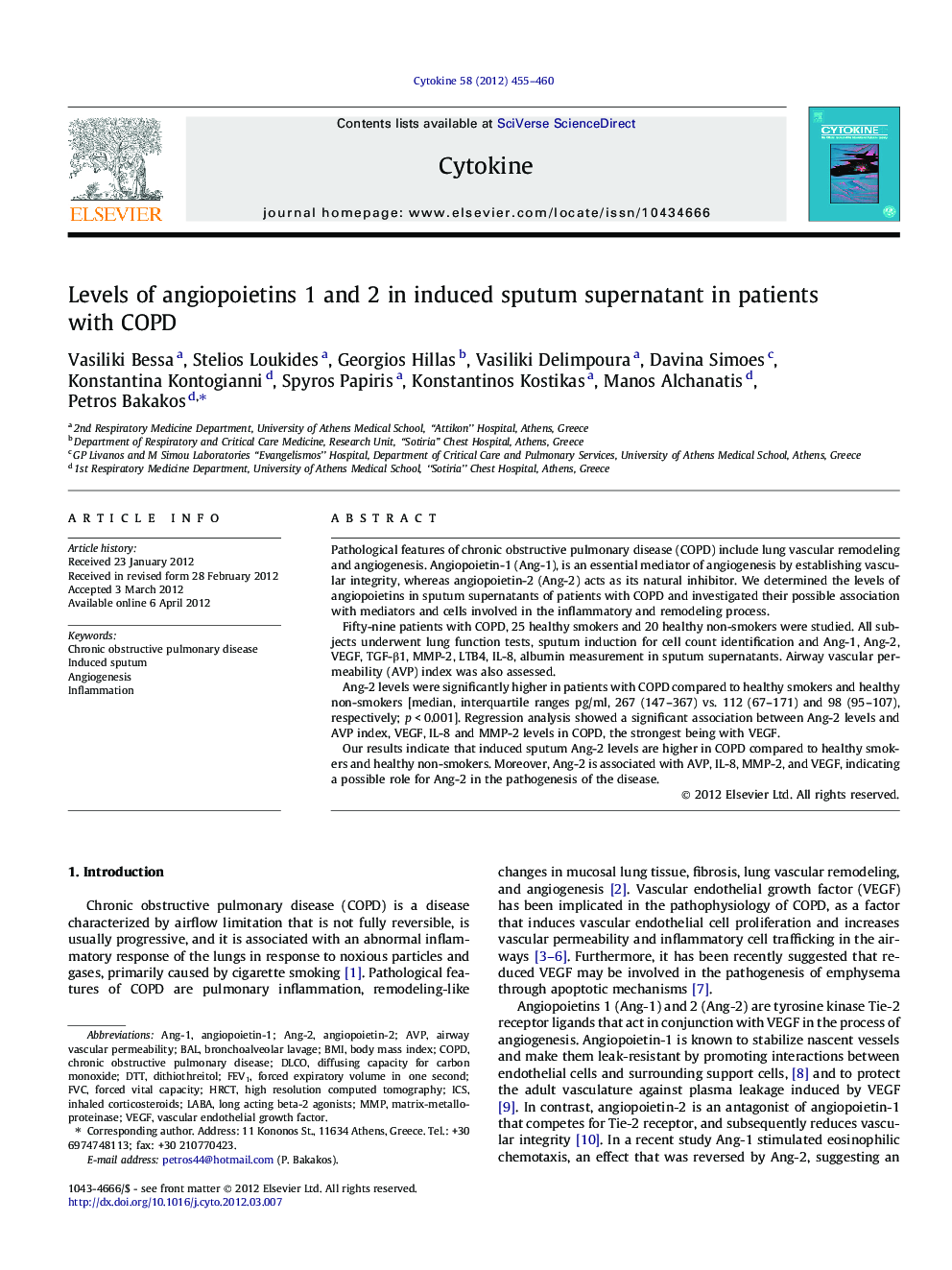| Article ID | Journal | Published Year | Pages | File Type |
|---|---|---|---|---|
| 2794427 | Cytokine | 2012 | 6 Pages |
Pathological features of chronic obstructive pulmonary disease (COPD) include lung vascular remodeling and angiogenesis. Angiopoietin-1 (Ang-1), is an essential mediator of angiogenesis by establishing vascular integrity, whereas angiopoietin-2 (Ang-2) acts as its natural inhibitor. We determined the levels of angiopoietins in sputum supernatants of patients with COPD and investigated their possible association with mediators and cells involved in the inflammatory and remodeling process.Fifty-nine patients with COPD, 25 healthy smokers and 20 healthy non-smokers were studied. All subjects underwent lung function tests, sputum induction for cell count identification and Ang-1, Ang-2, VEGF, TGF-β1, MMP-2, LTB4, IL-8, albumin measurement in sputum supernatants. Airway vascular permeability (AVP) index was also assessed.Ang-2 levels were significantly higher in patients with COPD compared to healthy smokers and healthy non-smokers [median, interquartile ranges pg/ml, 267 (147–367) vs. 112 (67–171) and 98 (95–107), respectively; p < 0.001]. Regression analysis showed a significant association between Ang-2 levels and AVP index, VEGF, IL-8 and MMP-2 levels in COPD, the strongest being with VEGF.Our results indicate that induced sputum Ang-2 levels are higher in COPD compared to healthy smokers and healthy non-smokers. Moreover, Ang-2 is associated with AVP, IL-8, MMP-2, and VEGF, indicating a possible role for Ang-2 in the pathogenesis of the disease.
► In contrast to asthma, vascular remodeling and angiogenesis have not been extensively evaluated in COPD. ► Angiopoietin-1 (Ang-1) and angiopoietin-2 (Ang-2) are essential mediators of angiogenesis. ► Induced sputum Ang-2 levels are higher in COPD compared to healthy smokers and healthy non-smokers. ► Induced sputum Ang-2 levels are associated with sputum IL-8, MMP-2, and VEGF levels in COPD. ► Our findings support a possible role for Ang-2 in the pathogenesis of COPD.
